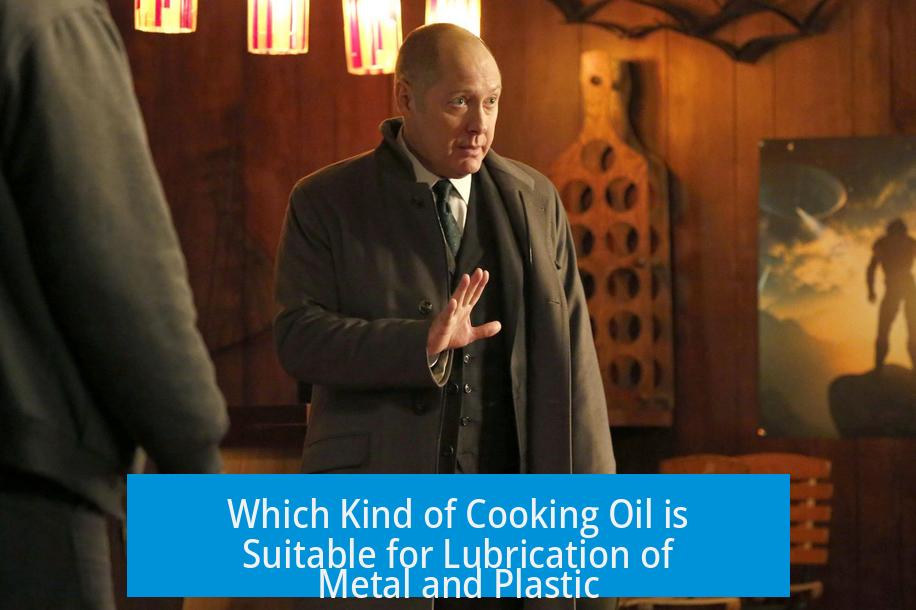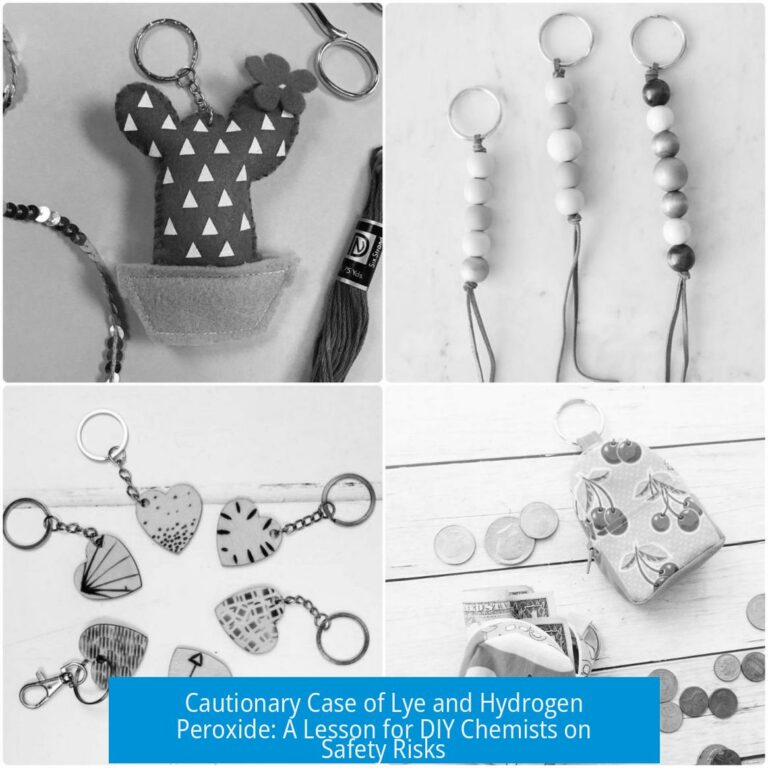Which Cooking Oil Is Suitable for Lubricating Metal and Plastic?

Food-grade mineral oil and certain cooking oils like almond oil are suitable for lubricating metal and plastic, considering safety, effectiveness, and material compatibility. Each option has pros and cons based on thickness, chemical stability, and potential plastic interaction.
Mineral Oil for Lubrication
Mineral oil, especially the food-grade type sold in pharmacies or stores, is a common choice. It is food safe and non-toxic, making it ideal for metal items frequently handled, such as door locks. Mineral oil offers smooth lubrication without damaging metal surfaces.
However, despite its safety rating, some users hesitate to apply mineral oil directly on food-contact surfaces. Mineral oil is also widely used as a laxative, emphasizing its safety but not necessarily encouraging direct food surface applications.
Cooking Oils: Almond, Sunflower, Olive, and Canola
- Almond oil is thin and light, making it suitable for lightly lubricating food-related items without leaving a heavy residue.
- Sunflower and olive oils are thicker and may not perform as effectively in lubrication due to their higher viscosity.
- Canola oil is another option; however, no specific advantages are highlighted compared to mineral or almond oils.
- Oils like coconut and olive that remain liquid at low temperatures work better for small projects, as they avoid hardening.
Silicone Oil Consideration
![]()
Food-safe silicone oil offers excellent lubrication and is resistant to temperature changes. It often outperforms cooking oils regarding longevity and plastic compatibility. If available, it is a recommended choice, especially where food safety and material preservation matter.
Concerns with Oils and Plastic
One key concern is that many cooking oils, and some lubricants, can degrade plastic polymers over time. This risk exists for both mineral and cooking oils, though silicone oils present fewer issues.
Users should test oils on plastic components prior to extensive application and consider alternatives if degradation is observed.
Summary of Suitable Cooking Oils for Lubrication
- Food-grade mineral oil: Safe, effective for metal and frequently handled items; cautious use on food surfaces advised.
- Almond oil: Thin and mildly effective; good for light lubrication on food-contact items.
- Sunflower, olive, and canola oils: Thicker consistency; less ideal but usable for certain applications.
- Food-safe silicone oil: Superior alternative with better resistance to plastic degradation.
- Plastic interaction: Monitor for degradation risk; conduct tests before application.
Which Kind of Cooking Oil is Suitable for Lubrication of Metal and Plastic?

Wondering which cooking oil can double as a slick lubricant for your metal and plastic items? The answer isn’t as simple as just grabbing any oil from the kitchen cabinet. Different oils behave uniquely on materials, influencing their longevity and performance. Let’s dive into the oily world of lubrication and find which one truly deserves a spot in your DIY toolbox.
Lubrication is essential for reducing friction and wear in anything from rusty door locks to squeaky plastic joints. Still, there’s a twist: the lubricant must be safe, effective, and compatible with the material it greases. So, can that bottle of olive oil do the trick? Or is mineral oil the unsung hero here? Let’s explore.
Mineral Oil: The Trusty Food-Safe Lubricant
First up, mineral oil—the quiet champion. You can find this clear, odorless oil at pharmacies or stores, marketed as food-safe and nontoxic. What makes mineral oil stand out is its versatility. It’s frequently used for lubricating parts like door locks or hinges that people handle daily. Unlike WD-40 and other chemical sprays, mineral oil doesn’t pose health risks when it comes in contact with your skin.
However, a word of caution: even though mineral oil is food grade, some folks hesitate to apply it directly to surfaces that touch their food. This concern is understandable —after all, you want to avoid any chemical interaction or taste alteration on your cooking utensils or cutting boards.
Still, if you need a reliable lubricant that balances safety with performance, mineral oil is a solid choice. Its thin consistency allows it to seep into tight spaces, reducing friction without gumming up mechanisms. For instance, a friend reported buying food-grade mineral oil specifically to maintain sliding drawers and doorlocks. He threw out the WD-40 and hasn’t looked back.
Cooking Oils: The Kitchen’s Double Agents
Now, what about everyday cooking oils like almond, sunflower, olive, and canola? These might seem like obvious candidates. After all, they’re designed for food, so safety isn’t an issue. But lubrication needs differ from cooking needs.
- Almond Oil is impressively thin compared to other vegetable oils. Its low viscosity makes it suitable for small, delicate repairs or food-related items that need gentle lubrication. One user shared they apply a tiny dab of almond oil on kitchen tools to keep them smooth without leaving a sticky mess.
- Sunflower and Olive Oil, on the other hand, have thicker consistency. This thickness can cause issues—the oil might attract dust or become gummy over time, which isn’t ideal for moving parts. However, olive oil stands out because it remains liquid at cold temperatures, which could benefit small projects where cold isn’t a factor.
- Canola Oil is also on the list. It’s moderately viscous and works reasonably well, though it doesn’t have any extraordinary properties that set it apart for lubrication.
If you’re experimenting with cooking oils, remember that oils like olive and coconut don’t harden in the cold. This characteristic helps maintain lubrication when temperatures drop. Just don’t expect these oils to last forever—they might spoil or develop odors over time, especially when exposed to air.
Silicone Oil: The Specialist
![]()
Although not a cooking oil, silicone oil deserves a mention. Food-safe silicone oil offers excellent lubrication properties. It poses no risk on food-contact surfaces and can be much more durable and less prone to degradation than vegetable oils or mineral oil.
If you want a modern solution, especially for plastic parts where traditional oils might degrade the material, silicone oil is ideal. It’s almost like the secret sauce for lubrication: effective, safe, and long-lasting.
Plastic and Oil—A Sticky Situation?
Here’s the catch. Oils, especially cooking oils, might degrade plastic over time. This isn’t just an urban myth. Certain oils can soften or weaken plastic materials, leading to cracks or deformation. So, if you plan to lubricate plastic components, be cautious about which oil you use.
Mineral oil tends to be safer for many plastics, but even it is not completely risk-free. Silicone oil, because of its synthetic nature, highly resists plastic degradation. Cooking oils like olive or sunflower might jeopardize your plastic gears if left for a long time.
Final Recommendations: What Should You Use?
Choosing the right oil boils down to these questions:
- Is the object metal or plastic?
- Does the surface come into contact with food?
- Will the component face cold temperatures?
- How often will lubrication be reapplied?
For metal parts handled regularly (door locks, hinges), food-grade mineral oil is your best bet. It combines safety with effective lubrication and avoids harsh chemicals.
For small food-contact items needing gentle lubrication, almond oil is a thin, food-safe option, especially if you want all-natural products. Avoid thicker oils like sunflower or olive if the mechanism is delicate or prone to getting sticky.
If you’re tackling plastic parts, especially in gadgets or appliances, consider a food-safe silicone oil. It won’t degrade plastic and lasts longer than mineral or cooking oils.
And if you choose cooking oils, avoid using them long-term on plastic due to the risk of damage. Also, they may go rancid, leading to unpleasant odors or gumming effects.
So, which one wins?
Mineral oil takes the crown as the most versatile, safe, and reliable oil for lubricating metal and certain plastics, especially in food-handling scenarios. Almond oil sneaks in close for light-duty food-safe applications, while silicone oil shines for synthetic parts that demand extra care.
Next time your door lock squeaks or your plastic gadget sticks, think twice before reaching for that random cooking oil bottle. Knowing the properties and impacts of your lubricants can save you repair headaches and extend the life of your stuff.
Want to experiment further? Try applying a tiny amount of almond oil on wooden spoons or kitchen knives and see how smoothly they glide the next time you cook. Or swap out WD-40 for mineral oil on frequently touched metal surfaces and feel the difference.
Keep your tools and parts happily lubricated—but always keep a bottle of mineral or silicone oil nearby for the best results. Your locks, gears, and even plastic parts will thank you.
What cooking oils are best for lubricating metal parts used with food?
Food-grade mineral oil and thin oils like almond oil work well. Mineral oil is nontoxic and safe. Almond oil is thin and suitable for food-related items.
Can thicker cooking oils like olive or sunflower oil be used for lubrication?
Thicker oils like olive and sunflower oil are less ideal because they may not spread as easily. Olive oil resists hardening in cold temperatures but is thicker overall.
Is silicone oil a good choice for lubricating kitchen tools?
Food-safe silicone oil is recommended for certain lubrication tasks. It performs well without risk of contamination or plastic damage.
Does cooking oil damage plastic when used for lubrication?
Cooking oils can degrade plastics over time. This makes oils less ideal for plastic parts that require long-term lubrication.
Why is mineral oil preferred over products like WD-40 for metal lubrication?
Mineral oil is food safe and nontoxic, unlike WD-40. It’s better for frequently handled items such as door locks and kitchen tools.





Leave a Comment